This post is aimed at answering the common questions that one faces when he hears about Linux – What is software freedom and what is Open Source.
A lot of people visiting this site had asked me how does freedom relate with Linux. Many have seen the tag line of this blog and have wondered what does that mean. Well, here I want to clarify all your doubts and questions about Free software and Linux and the term “freedom” as associated with it.
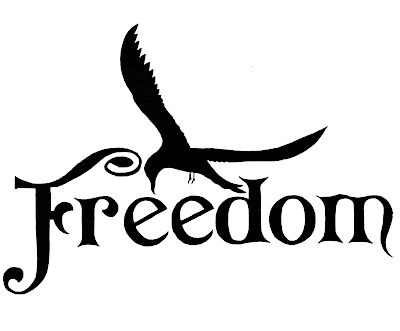 |
| What does Freedom mean to you? |
I first came to know about Open Source when I was in 9th standard in my school when I had accidentally bought a Linux for You magazine from the store. To me, it was the curiosity of Linux with drew me closer. I had heard about Linux before, only once and twice I guess. To my unknown eyes, Linux looked a command line giant, where only geeks can fit themselves in. Flipping the pages, I got to know that Linux is not just a kernel and other software utilities that make up the system. Its a software culture, a religion which is more humane that proprietary ones. Its where the ‘good people’ still exist, and the thing called sharing and caring is still exercised. Unlike the real world, people still follow manners and morals here and goodwill of the community is looked before individual profits. Fast forward four years, my first year in college and the first time I tried Linux in a computer. Today I know that Linux is powerful, extensible, fast, secure and what not. But I don’t love Linux for it. I love Linux because its good.
To you, I ask a question. What does freedom mean for you? When can you call yourselves free? From the philosophical context, here I list a few points that must exists to call yourselves “free”.
- The ability to be not under control someone
- Not under any restrictions
- The ability to make choices of your own
- To “own” yourself or what you own
Though it may seem that all the points above mean the same thing, I will explain how they differ and why, in a short while. Before that, lets have a look at what drives the Linux thing – Open Source.
Though Open Source software is also termed as free, both of them mean the same thing. The software we use in computing today is made by programmers using some kind of high-level languages. Many organisations and also individuals are after these software creation and maintenance. In most cases, the source code, i.e. the code of high level language the software is made in, is not exposed to the users for the obvious reasons,, they don’t need it. Open Source software follows a different philosophy, the code of the software is given to any one who wants it, and he/she can duplicate and modify the source code according to his her needs. This is called “freedom”, because you are free to obtain the software and do whatever you want with it according to your needs.
Open source benefits a lot to developers as it reduces a lot of work. Imagine you are making a dish, and some part of it is already ready made supplied to you. Wouldn’t it be nice then? Not only it will save your time, but also money and other headaches. And whats more better if you are able to mould the ready made ingredient according to your wish without any restrictions?
Please note that Free and Open Source software (FOSS) need not to be free of price, though mostly it is. Imagine again the Kitchen example to have a clearer view of it. You need to buy all the ingredients from the market, be it salt, pepper or chilies. However, you are free to use them as you like, and mix them to quantities you desire. No one will object on how you use it. Same is the case with FOSS software. Maybe sometimes you will have to pay to buy it, but to use it or to modify it, you are free.
Our Indian readers will understand it better. There are two terms in Hindi, one is “muft” (which means free of price) and another is “mukt” (which means free to modify and use). Here in open source, we focus on “mukt” one, though most of the time, “mukt” software can be “muft” too.
Its comes from a common sense that Open Source offers a lot of benefits for the developers and software makers. It makes the software making process faster and the software more reliable. In proprietary software, its a few individuals that make the software, but in Open Source, there is a whole community. And its a fact that more heads are better than one or few. If there is something wrong with the software, then its gets fixed by the community in a short time. A bigger community also means a better help system, as you have a lot of people to ask and seek help. This is the open source culture, where people share and care the code, and are always ready to help any person with a problem. Its more social, more helpful and more good.
Okay, now how odes Open Source benefit you, as a user, who doesn’t need to care what the code is? As stated earlier, it makes the software more reliable. Also as lot of people are behind the project, bugs and errors in the program are fixed soon and there are large communities that help you in every distress. Also, as most FOSS softwares are also free of price, it doesn’t make a hole in your pockets. It offers you a lot of freedom which proprietary software cant offer you anyday. Now to discuss freedom we have to move to our previous discussion as what does freedom mean to you. We will discuss the points that we highlighted and discuss them one after other in FOSS context.
- The ability to be not under control someone : You are not under someone, if you use or develop an Open Source software. Open Source software are not owned by any individuals, they are owned and are a product of the community of users who made and use it. Its you who make decisions regarding it.
- Not under any restrictions : When you use any software or maybe a site, you must have come across pages with the title “End User License Agreements”. Its a document you must agree to before using any software product. On the contrary, these License take away your rights and restrict the software usage and put you in some boundaries, beyond which you have no legal rights to use the software. Open Source software has no such restrictions, and you are free to do whatever you like with it, without any boundaries or limitations. I am using Linux for the past one year and have never seen any EULA agreements in all my software installations!
- The ability to make choices of your own : Linux is lot about choice. If you don’t like a software, or any part of it, you are free to dump it and make changes to it as you like. You are also encouraged to make the changes in software as you like, and pass the same to others for the benefit of the community. This is how FOSS software works, always evolving from good to better at every new release.
- To “own” yourself or what you own : You own your computer, your software and your system. You are the soul owner of it and are free to use and change it according to your needs. No one restricts the your ability to use the computer or the software.
Thus we see that FOSS software offer a lot of freedom at all levels. Maybe you are thinking that Open Source software are not that popular, but thats not true. Every one loves the Mozilla Firefox and the VLC media player, isn’t it? All of them are free software. The Free Download Manager is another example. Also large websites such as Facebook and Google run on FOSS software. Government organizations use FOSS software to cut costs and improve reliability. To list all the achievements will make this post more long and boring, so we leave it up to you to discover more Open Source software.
FOSS is perhaps the only part of the “good” world still left, where people share, cooperate and help each other. Linux is just a part of this revolution. FOSS software changes the way you think and use your PC. So the next time, you come across the word Linux somewhere, you know its not just a software, its a religion.



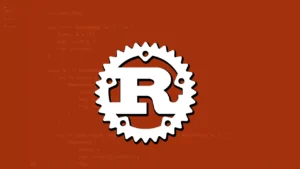

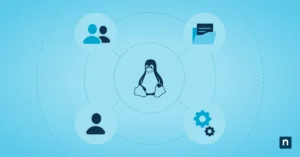

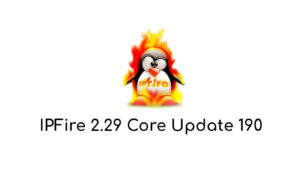
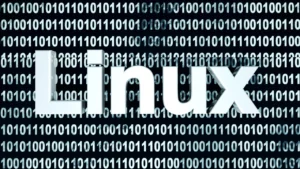
there is no absolute freedom available !
always we will remain under some bonds or some circumstantial prison…
brilliant write up
Glad that you liked it..
Also freedom is a controversial word and it varies from person to person